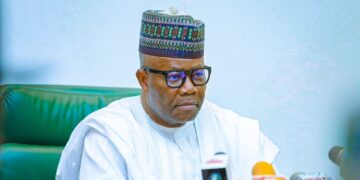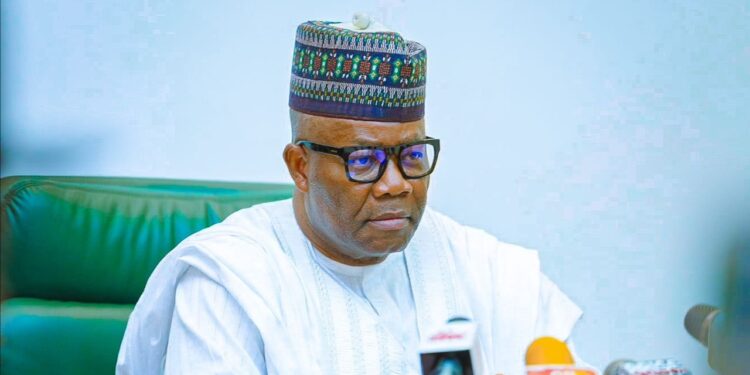By Enyichukwu Enemanna
Despite engaging nearly 3,000 aides who work with 469 members of the Nigerian National Assembly, President of the Senate, Godswill Akpabio has called for transparency, accountability and the elimination of unnecessary expenditures in order to reduce the burgeoning cost of governance in the West African nation.
Nigeria with two chambers of National Assembly comprising 109 Senators and 360 members of House of Representatives spends a large chunk of its annual budget to service its lawmakers despite escalating record poverty rate in the country amidst soaring cost of living.
The National Assembly Act empowers each lawmaker to appoint at least five aides comprising one senior legislative aide, two legislative aides, a personal assistant and secretary.
The Act also provides a different number of aides for the Senate President and Speaker of the House of Representatives.
The office of the Senate President is entitled to 45 appointees, Deputy Senate President, 30, House Speaker, 33, Deputy Speaker, 15, and Principal Officers, 10 each.
Heritage Times HT reports that the total number of aides of the presiding officers and principal officers is 363, making the total number of all aides statutorily provided 2,563.
READ ALSO: UN Chief Condemns Attack On Personnel, Urges Thorough Investigation
But despite these, Akpabio, a former governor of oil-rich Akwa Ibom State, South South Nigeria is calling for a reduction in governance cost.
Akpabio made the call on Monday at a one-day dialogue on the cost of governace in Nigeria organised by the National Institute for Legislative and Democratic Studies (NILDS) in Abuja.
Represented by Sen. Agom Jarigbe (PDP-Rivers), Akpabio highlighted the possible factors contributing to the high cost of governace in the country.
According to him, the size of our bureaucracy, the escalating public service wage bills, the overhead costs of appointing public officials, the salaries and allowances of elected officials are major factors.
He said that the running of government institutions among other substantial components contributed to weighing down the economy and hindering development efforts.
“Let us hold ourselves accountable and take responsibility for the betterment of our nation.
“We have to ensure that our government operates efficiently and effectively, serving the needs of the people and fostering sustainable development.”
The president of the senate emphasized the need to streamline bureaucracy, eliminate unnecessary expenditures, and ensure transparency and accountability at all levels of governance.
“We must invest in our human capital, empowering our public officials with the necessary skills and knowledge to drive progress.
“And we must foster a culture of innovation and creativity, where new ideas can flourish and transform our nation,” he said.
Akpabio urged all Nigerians to remain united, become agents of change and be committed to making sacrifices for the nation.




































